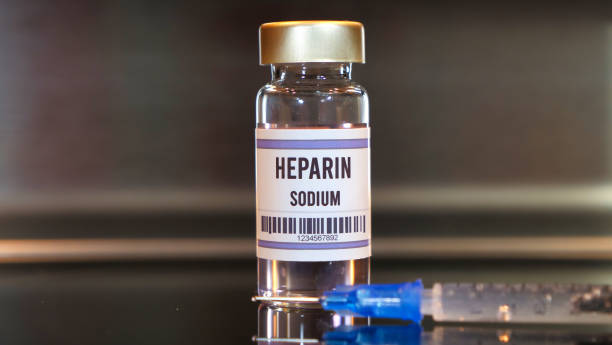Global Heparin Market was Worth $9.4 Billion in 2017 and is Expected to Grow at a CAGR of 5.1% between 2018 and 2026
Insights into the Heparin Market
Heparin is a medication that is used to prevent or treat blood vessel, heart, and lung conditions. It is also used in blood transfusion, blood sampling for prophylaxis treatment, and the treatment of blood clotting disorders. Heparin may be used to diagnose and treat disseminated intravascular coagulation, a serious blood condition. Heparin is sometimes used alone or in combination with aspirin to prevent miscarriage and other complications.
The rising prevalence of coronary heart disease, pulmonary embolism, and deep vein thrombosis is expected to propel the Heparin Market forward. Heparin is widely used in clinical settings for dialysis, deep vein thrombosis (DVT), and the majority of cardiac surgeries. It's also used to keep blood clots from forming during open-heart surgery, kidney dialysis, bypass surgery, and blood transfusions. Kidney dialysis procedures are becoming more common as the global prevalence of chronic kidney disease rises. According to the Kidney Care UK 2016 report, approximately 3 million people in the United Kingdom suffer from chronic kidney disease (CKD).
Furthermore, the rising prevalence of diseases such as deep vein thrombosis and coronary heart disease are fueling demand for heparin and, as a result, driving Growth in The Heparin Market during the forecast period. According to the American Heart Association's 2018 report, coronary heart disease is responsible for one in every seven deaths in the United States, killing over 366,800 people each year. According to the same source, the overall prevalence of myocardial infarction (MI) in the United States is approximately 7.9 million, or 3% of all adults in the country.
Market Restriction for Heparin
The major Heparin Market restraints are the side effects associated with the use of heparin. Heparin's most serious side effect is bleeding. Heparin can cause spontaneous bleeding in a variety of locations throughout the body, including open wounds or surgical sites, the intestines and stomach, the ovaries and uterus, and the mouth and gums. Another serious heparin side effect is heparin-induced thrombocytopenia (HIT), a condition in which heparin causes the body's immune system to develop antibodies against its own platelets, increasing the risk of bleeding due to platelet depletion.




Comments
Post a Comment